after teaching about stress, which information indicates a correct understanding of stress?
 Question 181 out of 1 points A 30 year old female is diagnosed with cancer | Course Hero
Question 181 out of 1 points A 30 year old female is diagnosed with cancer | Course HeroMain menuMental HealthWellness Module 2: Stress and well-being Author: CMHA BC and Anxiety Canada Do you have trouble coping? Did you get stressed? Are you feeling overwhelmed? Do you have trouble coping? Did you get stressed? Are you feeling overwhelmed? If your answer is YES, you're not alone. Everyone feels stressed from time to time. Some people, however, say they feel very stressed most of the time. In fact, 21 per cent of Canadians over the age of 12 described their vital stress as a bit or extremely stressful. Although stress is not always bad and can be helpful, too much stress can negatively affect your well-being. What causes stress? Stress arises when you feel that the demands of a situation or event are too much to handle. Daily situations may arise, such as:Managing demands at work or schoolManaging relationships Finance Management Dealing with unfair treatment Long-term health problems management Stress may also appear in response to a specific event or situation. Both the positive and negative events of life can be stressful, especially those that involve major changes in their regular routines. Here are some examples: Changes in a Relationship Changes in housing arrangements The death of a relative or friend Changes in your work or other source of income Because stress is based on how you see and react to a situation or event, events or situations that cause stress are different for different people. How you feel when problems arise can also affect the way you experience stress. If you feel well and confident in your ability to manage the challenges, a problem may not seem very stressful. However, if you already feel stressed or overwhelmed, the same problem can add to your existing stress and feel very overwhelming. Are you experiencing signs of stress? Stress can affect your body, behavior, feelings, and thoughts. Here are common signs of stress: Muscles of tensionRapid breathing and heart rateHeadachesDifferences to sleep wellFatsSexchangesWeaker immune system Removing from other Fidgeting, feeling restless Fumar, drinking or using more drugs than usual Avoiding situations you think are stressful Feeling worried or confused Feeling angry or irritable Feeling overwhelmed or not Your body is designed to react to stress in ways that protect you from threats, such as predators. While facing predators who threaten life is not common today, you have many daily demands, such as paying bills, working and caring for the family. Your body treats these demands as threats and the response of light-free struggle is activated in your body. Sometimes stress can have a negative effect on the basic dimensions of mental health (their thoughts, emotions, behaviors and body reactions). Stress can affect your health if you use unhealthy behaviors to cope with. The negative effects of stress on your well-being can become a source of stress in themselves. Just talk to someone who's not sleeping well because of stress! For more information on the dimensions of mental health that can be influenced by stress, see the Wellness 1: Mental Health Matters at module.Can stress be a good thing? Sometimes stress can have a positive effect on your thoughts, emotions, behaviors, and body reactions. Stress is more likely to result in positive results if you see it as a challenge or something you can strive to overcome. It can help motivate you to work hard. Stress can also cause positive effects if you respond with healthy behaviors that improve your situation. You may experience the positive effects of stress even on the face of some negative effects. Stress and Disease Your stress levels and your coping skills can also influence your physical health. The higher levels of stress can increase the risk of disease and disease. For example, it is more likely that a cold or flu is taken when faced with high levels of stress. There is also evidence that stress can aggravate disorders such as rheumatoid arthritis, dependent insulin diabetes, multiple sclerosis and more. Chronic stress also has a negative impact on your physical health. Some of the connections between stress and disease are determined by the ways it faces stress. Dealing with Stress There is no right or wrong way to cope with stress. What works for one person cannot work for another, and what works in a situation may not work in another situation. Below you will find common ways to cope with stress and maintain well-being. Focus on what you can do There is usually something you can do to manage stress in most situations. Manage your emotions Feelings of sadness, anger or fear are common when faced with stress. Search for support Finding social support from other people is useful, especially when you feel you cannot cope on your own. Family, friends, collaborators and health professionals can be important sources of support. Focus on useful and realistic thoughts This is one of the hardest things to do when you face stress. Sometimes it may seem impossible. But, inhabiting negatives often adds to your stress and removes your motivation to improve things. Make an Action Plan Troubleshooting around aspects of a situation you can control is one of the most effective ways to reduce your stress. Try to break a stressful problem into manageable pieces. Think of the best way to address the problem. You may decide to put on hold other tasks to focus on the main problem, or you may decide to wait for the right time and place to act. See our Wellness module to solve problems Self-care Taking good care of yourself can be difficult during stressful times, but self-care can help you cope with problems more effectively. The trick to take care of yourself is to look for small things you can do every day to help you feel good. Here are some self-care activities to test. Try to think about other activities that could help! Take care of your relationships Family, friends and coworkers can be affected by their stress, and they can also be part of the problem. Be assertive about your needs instead of aggressive or passive. Being assertive means expressing your needs in a respectful way, which allows you to keep your feelings and needs, as well as the feelings and needs of others, in mind. Spirituality Spirituality takes many forms and means different things for different people. It can vary from culture to culture, being religion a way that people experience or express spirituality. People who participate in spiritual practice often experience lower levels of distress. If the community is part of a spiritual practice, it can also provide useful social support. Acceptance There may be times when you can't change something. This can be the most challenging aspect of facing stress. Acceptance means allowing unpleasant feelings and sensations to come to the surface and go without trying to resist or fight them. It allows people to recognize and reach terms with what is out of their control while focusing on actions they can take to improve their lives. Sometimes, all you can do is handle your anguish or pain. Distract Distraction can be useful when faced with short-term stress that cannot be controlled, such as reading a magazine while doing dental work. Distraction strategies can help you tolerate discomfort until it is a more appropriate time to solve the problem. Distraction can be harmful if it prevents you from taking action on things you can control, such as watching TV when you have school or work schedules to meet. Distraction by using drugs, alcohol or excess food usually leads to more stress and long-term problems. Excessive work at school or at work can easily lead to burning or other problems, such as family resentment. You can do a lot of things to take your mind off problems, like: When used for short periods of time, many of these forms of distraction create opportunities to take a break and refuel, an important part of self-care. There is usually something you can do to manage stress in most situations. Resist the urge to quit or run away from problems — these coping options may feel good in the short term, but often make long-term stress worseThe feelings of sadness, anger, or fear are common when faced with stress. Try to express your feelings by talking or writing them. Solving your emotions makes it harder to deal with stress Try not to kick others out. Screaming or swearing usually push people away when you need them moreMany of the coping strategies listed below are useful ways to manage your emotions Finding other people's social support is useful, especially when you feel you can't deal with it on your own. Family, friends, collaborators and health professionals can be important sources of support. Ask someone for their opinion or advice on how to handle the situation Get more information to help make decisions Accept help with daily tasks and responsibilities, such as child care or tasks Get emotional support from someone you trust to understand and care about you This is one of the most difficult things to do when you face stress. Sometimes it may seem impossible. But, inhabiting negatives often adds to your stress and removes your motivation to improve things. Focus on strengths rather than weaknesses: remember that no one is perfect; think of times when you have been able to overcome challenges in the pastLook for the challenges in a situation by asking: "What can I learn from this?" or "How can I grow as a person? "Try to keep things in perspective, is it a nuisance or a horror? Try to maintain a sense of humorRemember that you are doing the best you can give the circumstances Troubleshooting around aspects of a situation you can control is one of the most effective ways to reduce your stress. Try to break a stressful problem into manageable pieces. Think of the best way to address the problem. You may decide to put on hold other tasks to focus on the main problem, or you may decide to wait for the right time and place to act. Identify and define the problem Determine your objectiveBrainstorm possible solutions Consider the pros and cons of each possible solution Choose the best solution for you: the perfect solution rarely exists Put your plan into action Evaluate your efforts and choose another strategy, if necessary View our Wellness Module on troubleshooting to take care of it can be difficult during stressful times, but self-care can help you cope with the problems more effectively. The trick to take care of yourself is to look for small things you can do every day to help you feel good. Here are some self-care activities to test. Try to think about other activities that could help! Eat healthy foods and drink plenty of water all day to keep your energy Try to exercise or do something active on a regular basis Try to avoid alcohol or drugs as a way to copeExplore relaxation techniques such as deep breathing, meditation or yoga Spend time with family and friends Spend time on things you enjoy, such as hobbies or other activities Sleep well. Family, friends and coworkers can be affected by their stress, and they can also be part of the problem. Be assertive about your needs instead of aggressive or passive. Being assertive means expressing your needs in a respectful way, which allows you to keep your feelings and needs, as well as the feelings and needs of others, in mind. Try to discuss your concerns with others in a firm and quiet voice Consider the other person's point of view — if necessary, take some time before answerAccept responsibility, apologize or try to correct things when appropriate Talk to others who are involved and keep them informed about their decisions Spirituality takes many forms and means different things for different people. It can vary from culture to culture, being religion a way that people experience or express spirituality. People who participate in spiritual practice often experience lower levels of distress. If the community is part of a spiritual practice, it can also provide useful social support. Consider spiritual practices that fit your beliefs, such as prayer, mediation, tai chi, enjoyment of nature or creation of art If you have a formal place of worship, spend time there, or meet with others who share your beliefs Talk to a respected member or leader of your spiritual community There may be times when you can't change something. This can be the most challenging aspect of facing stress. Acceptance means allowing unpleasant feelings and sensations to come to the surface and go without trying to resist or fight them. It allows people to recognize and reach terms with what is out of their control while focusing on actions they can take to improve their lives. Sometimes, all you can do is handle your anguish or pain. Acceptance is a process that takes time. Denying that the problem exists may prolong your suffering and interfere with your ability to take actionDeath, illness, major losses or major life changes can be particularly difficult to acceptIngage in the present moment—try not to get up in wishful thinking or dwell on what could have been, but focus on what you are experiencing in the here-and-nowDistraction magazine can be helpful when coping with short-term work Distraction strategies can help you tolerate discomfort until it is a more appropriate time to solve the problem. Distraction can be harmful if it prevents you from taking action on things you can control, such as watching TV when you have school or work schedules to meet. Distraction by using drugs, alcohol or excess food usually leads to more stress and long-term problems. Excessive work at school or at work can easily lead to burning or other problems, such as family resentment. You can do a lot of things to take your mind off the problems, such as:Watch a tour or walkDoing something creativeOperating activities, exercise, hobbies Work at home, work in courtyard or gardening. Play video games Spend time with friends or familySpending time with petsConnecting with others on social networksKeep or take a short nap When used for short periods of time, many of these forms of distraction create opportunities to take a break and refuel, an important part of self-care. If you feel like you can't cope, try these options Talk to someone who cares about you. They can provide help and support. Get professional help as soon as possible. Prevention strategies can strengthen protection factors and improve mental health. Talk to your family doctor or mental health care provider, or visit a drop-down clinic or the hospital emergency room. Try these useful numbers Stress Survey: What types of stress are you facing? The problem of solving the controlling aspects of a stressful situation is one of the most effective ways to reduce our stress. Identifying the problem and breaking it into manageable pieces is the first step in creating an action plan. You can use this survey to help identify the different sources of stress in your life, and to track your progress in dealing with them in a healthy way. Check the boxes next to the prayers you feel apply to you, then brainstorm strategies to cope with or solve each problem. See the Coping with Stress section of this wellness module for more information and advice on how to make sure your coping options lead to stress reductions and a healthier and more satisfying life for you and your loved ones. Try to take the survey once a month to follow patterns in your behavior, and the positive and negative forms that handle stress. Adapted from: Holmes and Rahe, 1967; Wheaton, 1997. Canadian Mental Health Association BC Division helps people access community resources they need to maintain and improve mental health, increase resilience and support recovery of mental illnesses. CMHA BC has served BC for more than 60 years. Anxiety Canada promotes awareness of anxiety disorders and increases access to proven resources. Visit. Stay. ConnectedSign up for our various mental health and substance use resources. HeretoHelp is a BC Partners for Mental Health and Substance Use InformationWe are a group of seven leading mental health and substance use non-profit agencies. Since 2003, we have been working together to help people live well and better prevent and manage mental health problems and substance use. . QuicklinksFooter© HeretoHelp 2019
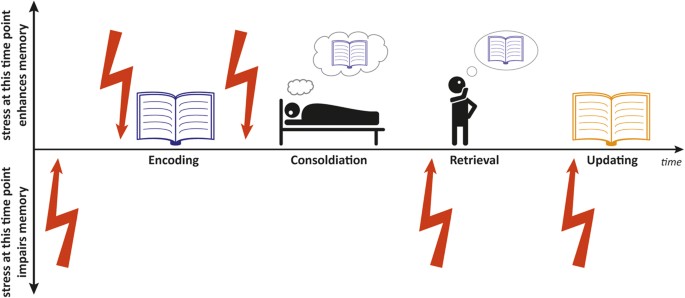
Learning and memory under stress: implications for the classroom | npj Science of Learning
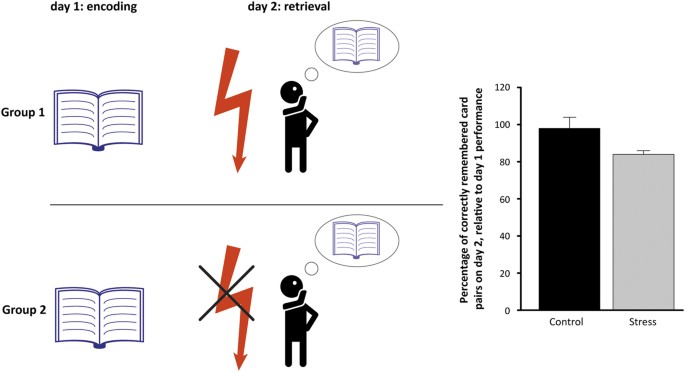
Learning and memory under stress: implications for the classroom | npj Science of Learning
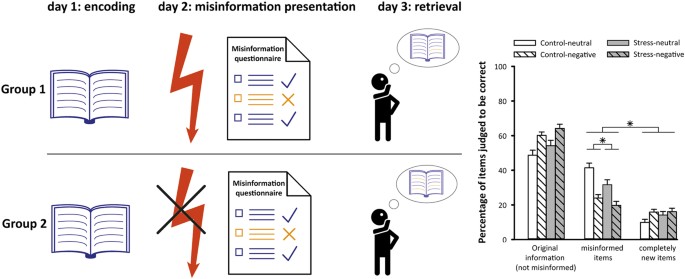
Learning and memory under stress: implications for the classroom | npj Science of Learning

Learning and memory under stress: implications for the classroom | npj Science of Learning

Question 181 out of 1 points A 30 year old female is diagnosed with cancer | Course Hero
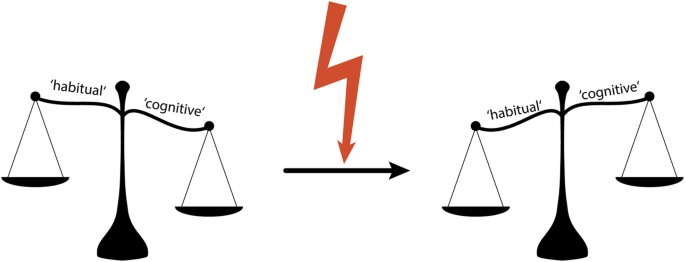
Learning and memory under stress: implications for the classroom | npj Science of Learning
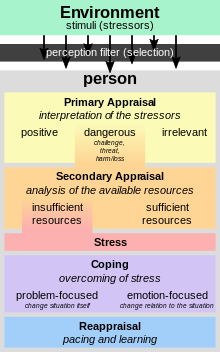
Stress management - Wikipedia
Full article: The relationship between beginning teachers' stress causes, stress responses, teaching behaviour and attrition
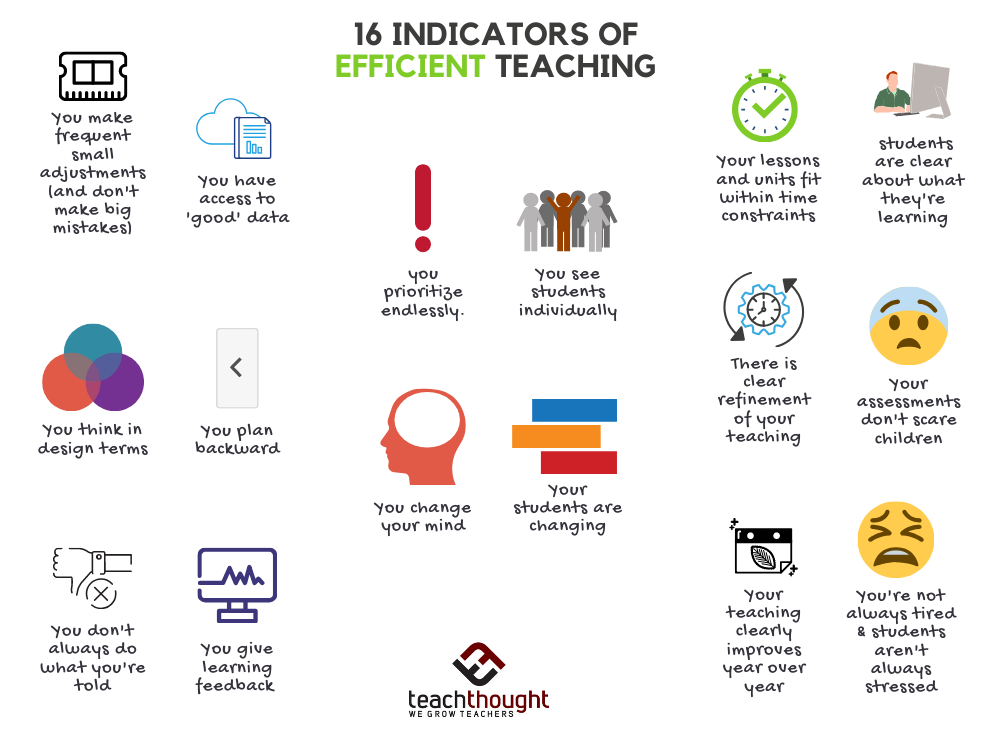
16 Indicators Of Efficient Teaching

Mental Health Stress and Resilience in Times of COVID-19 - Physiopedia

Teacher education - Wikipedia
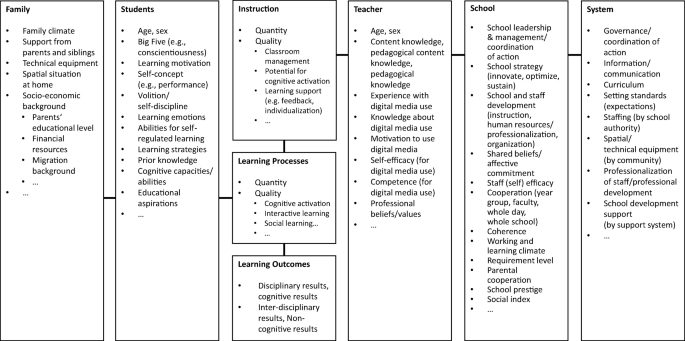
COVID-19 and schooling: evaluation, assessment and accountability in times of crises—reacting quickly to explore key issues for policy, practice and research with the school barometer | SpringerLink
Primary Stress and Intelligibility: Research to Motivate the Teaching of Suprasegmentals

Impact of Stress on Employee Productivity | Researchleap.com
Perceived Problems of Beginning Teachers
Empirically Derived Profiles of Teacher Stress, Burnout, Self-Efficacy, and Coping and Associated Student Outcomes - Keith C. Herman, Jal'et Hickmon-Rosa, Wendy M. Reinke, 2018
![PDF] Teacher Stress and Coping: Does the Process Differ According to Years of Teaching Experience? | Semantic Scholar PDF] Teacher Stress and Coping: Does the Process Differ According to Years of Teaching Experience? | Semantic Scholar](https://d3i71xaburhd42.cloudfront.net/2ec608a0f79e78127b29103322e12d1ac06b034f/110-Table5.12-1.png)
PDF] Teacher Stress and Coping: Does the Process Differ According to Years of Teaching Experience? | Semantic Scholar

Stress in an Organization | Organizational Behavior / Human Relations
Does professional development reduce the influence of teacher stress on teacherᅢ까タᅡモchild interactions in pre-kinde
Ways to Weather the "Storm and Stress" of Teaching Adolescents
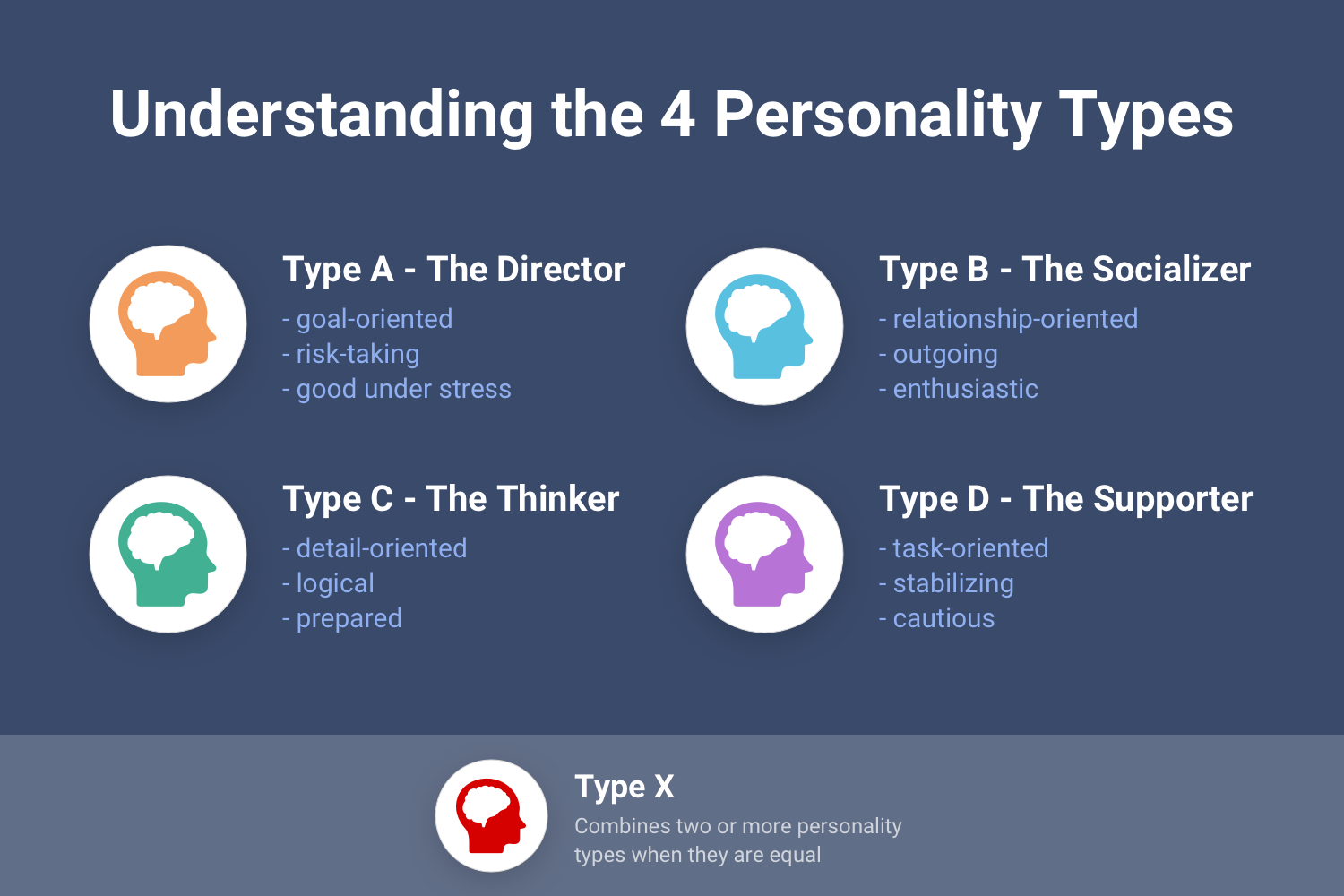
Understanding the 4 Personality Types: A, B, C, and D | Hire Success®
Effects of Work Stress and Social Support on Information Systems Managers
PDF) "If I go back, I would never tell the manager that I am stressed out": Novice TESOL Teacher Identity Development
Investigating teachers' psychological and physiological stress

Language Use in the Classroom: Balancing Target Language Exposure With the Need for Other Languages - Brevik - 2020 - TESOL Quarterly - Wiley Online Library
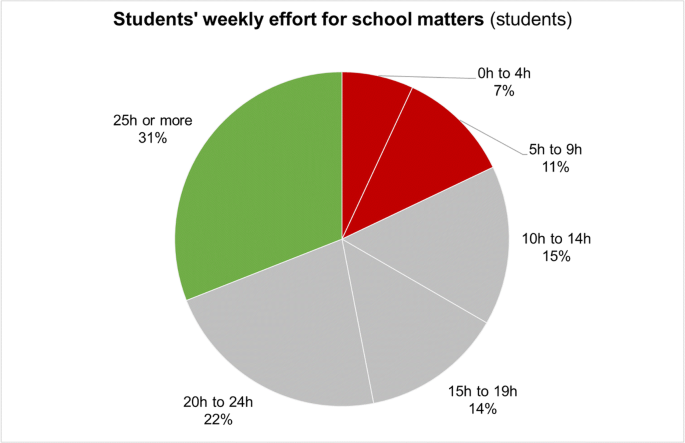
COVID-19 and schooling: evaluation, assessment and accountability in times of crises—reacting quickly to explore key issues for policy, practice and research with the school barometer | SpringerLink

Student misbehavior and teacher well-being: Testing the mediating role of the teacher-student relationship - ScienceDirect
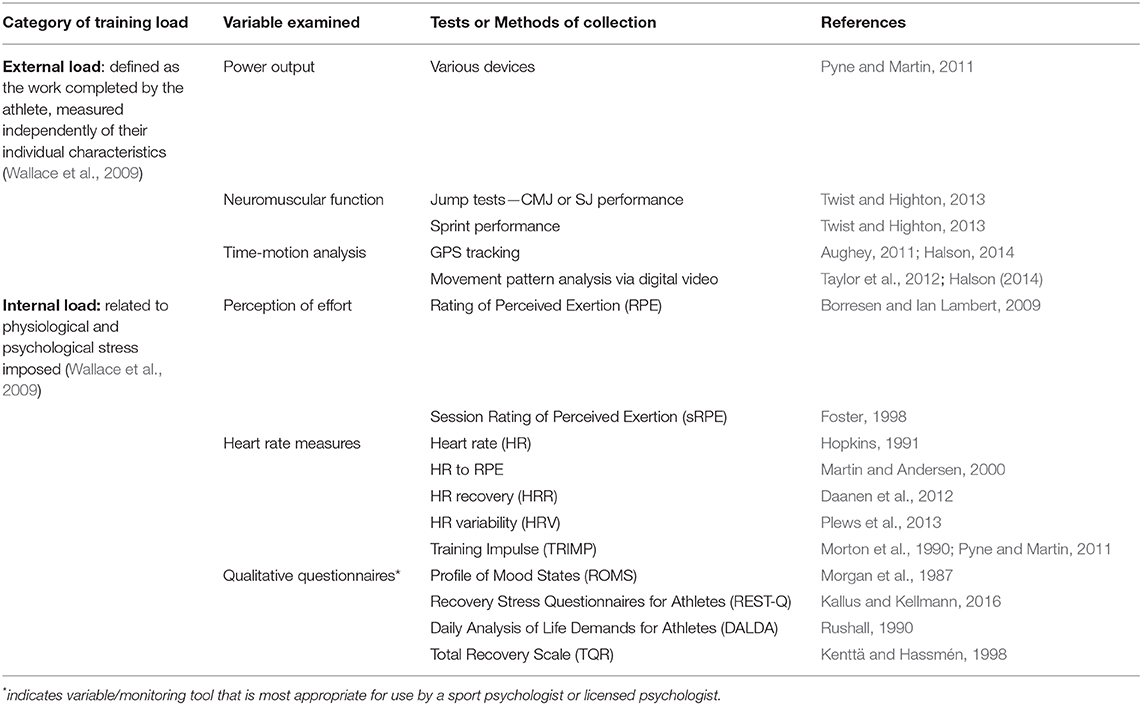
Frontiers | Stress in Academic and Athletic Performance in Collegiate Athletes: A Narrative Review of Sources and Monitoring Strategies | Sports and Active Living
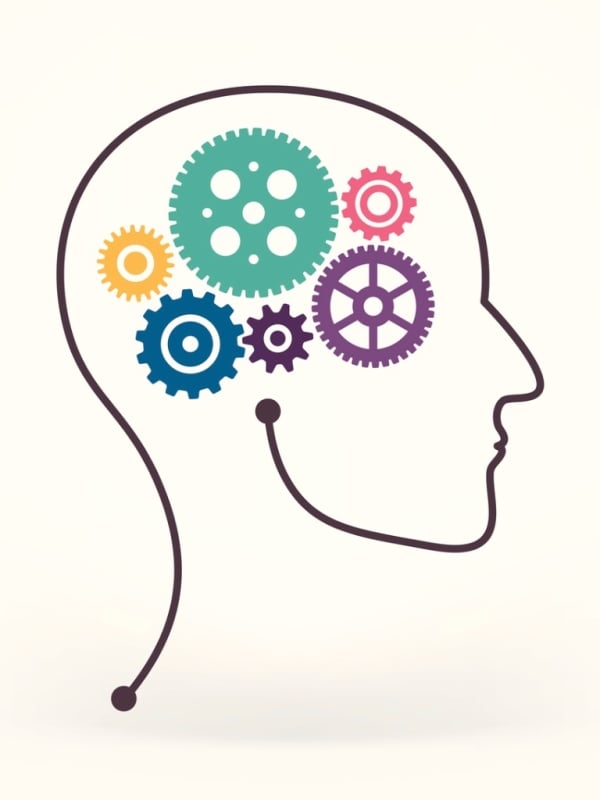
Teaching students to think critically (opinion)
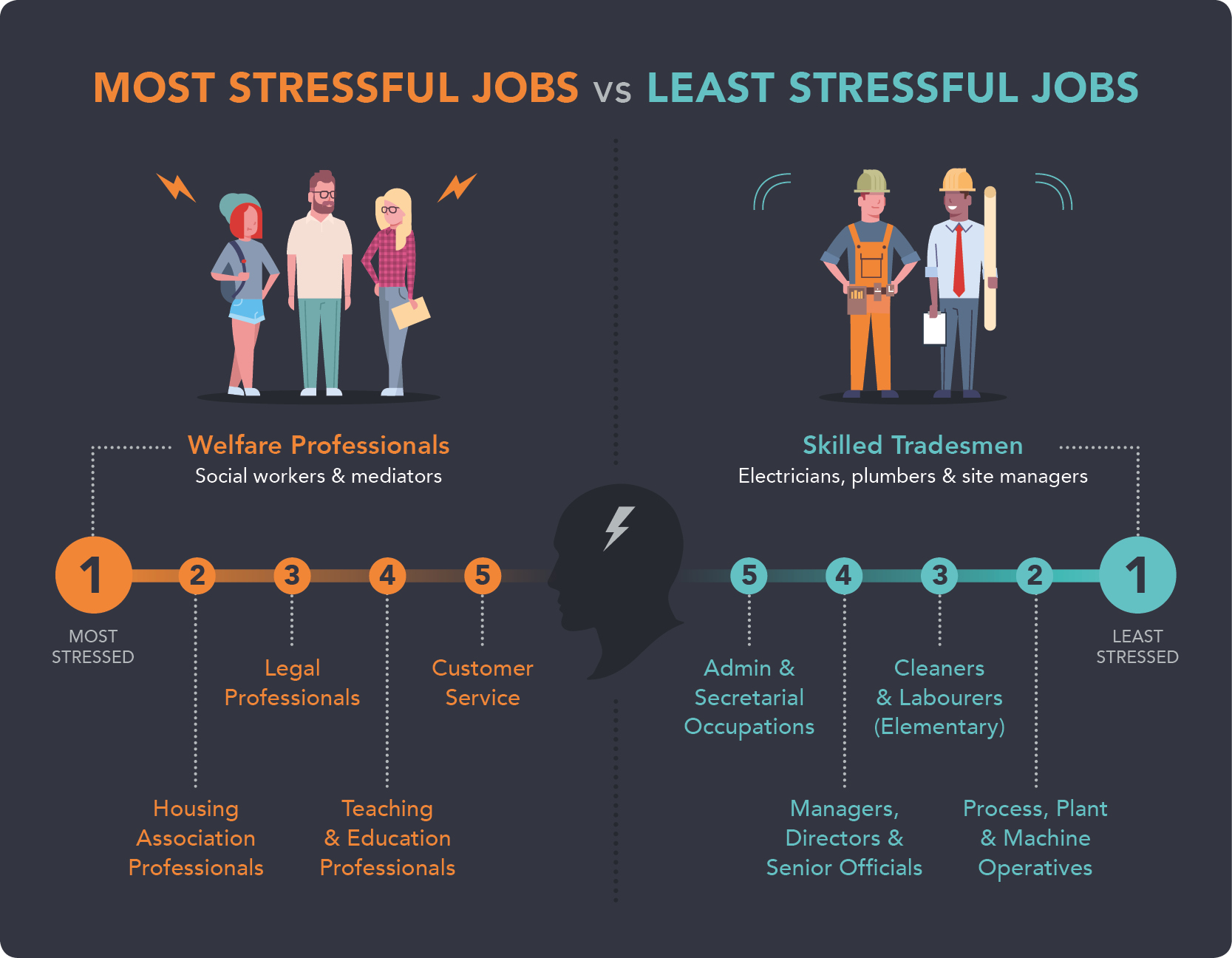
Professionals vs Tradesmen: Who has the most stressful jobs?
The relationship between beginning teachers' stress causes, stress responses, teaching behaviour and attrition
Acculturation and self-esteem as predictors of acculturative stress among international students at the University of Wollongong

Ch. 11 Scaffolding – Instructional Methods, Strategies and Technologies to Meet the Needs of All Learners

Canadian teachers' attitudes toward change, efficacy, and burnout during the COVID-19 pandemic - ScienceDirect
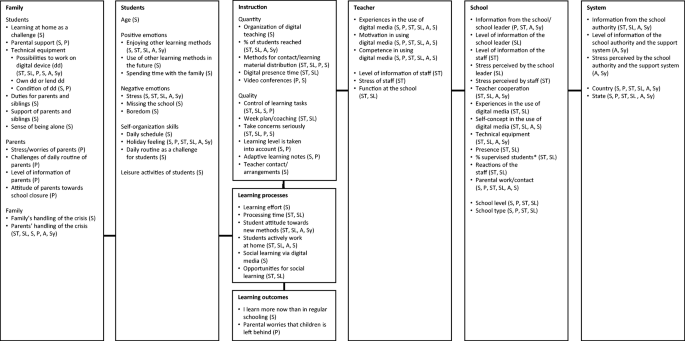
COVID-19 and schooling: evaluation, assessment and accountability in times of crises—reacting quickly to explore key issues for policy, practice and research with the school barometer | SpringerLink

Activation of acid-sensing ion channel 3 by lysophosphatidylcholine 16:0 mediates psychological stress-induced fibromyalgia-like pain | Annals of the Rheumatic Diseases
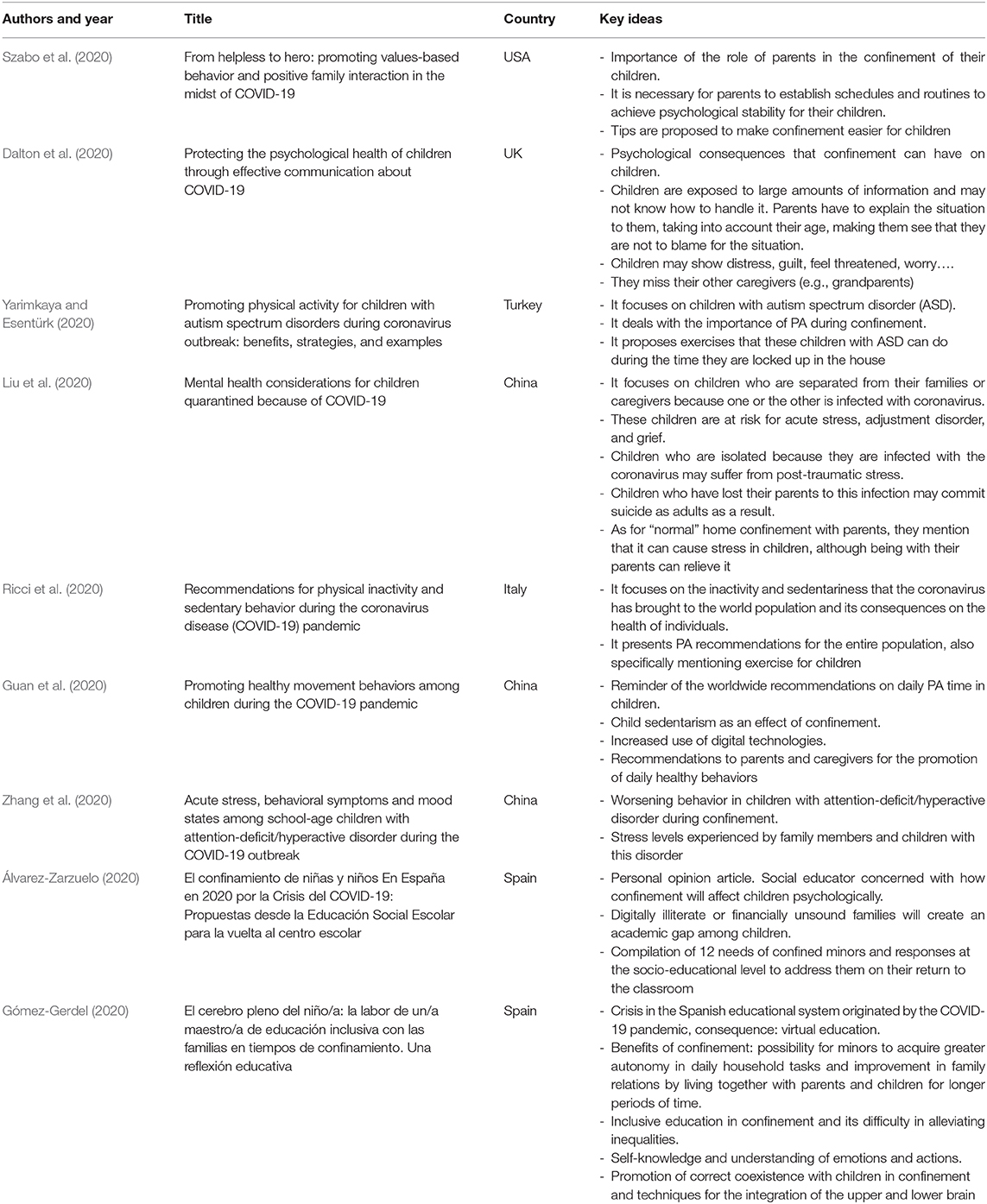
Frontiers | Systematic Review of the Literature About the Effects of the COVID-19 Pandemic on the Lives of School Children | Psychology
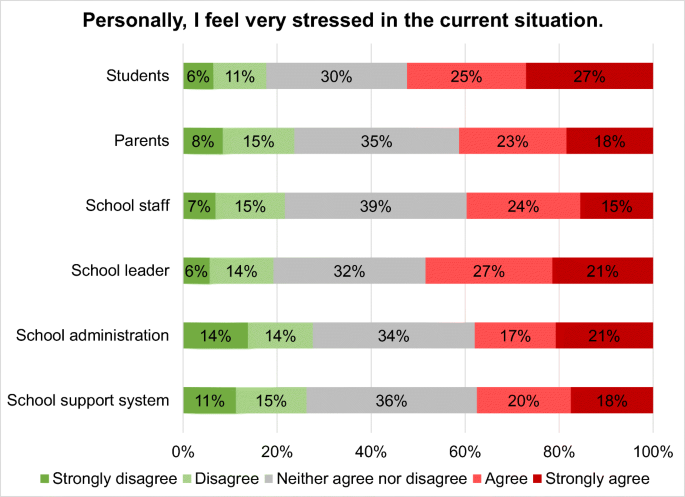
COVID-19 and schooling: evaluation, assessment and accountability in times of crises—reacting quickly to explore key issues for policy, practice and research with the school barometer | SpringerLink

Frontiers | Systematic Review of the Literature About the Effects of the COVID-19 Pandemic on the Lives of School Children | Psychology
Posting Komentar untuk "after teaching about stress, which information indicates a correct understanding of stress?"